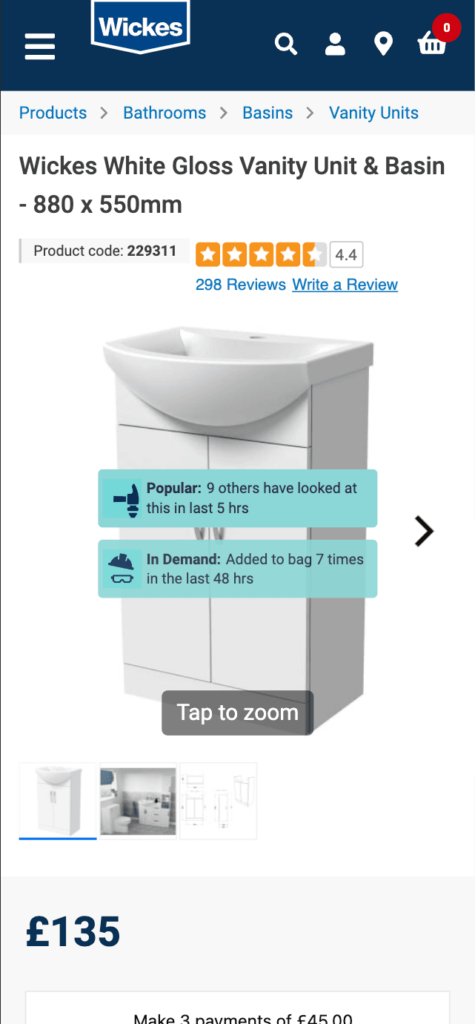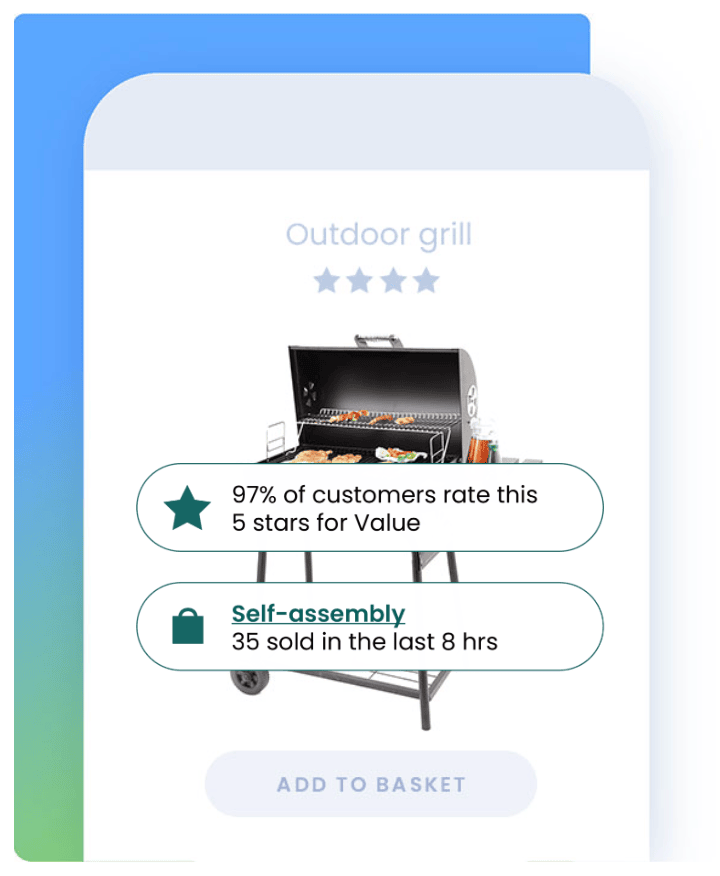Forced to work and play at home, consumers spent a lot of time and money on home improvement and DIY projects during the COVID-19 pandemic. And because of the pandemic, they bought the bulk of the materials, supplies and products for these projects online. The DIY and home improvement market and eCommerce sales were booming.
Today, consumers have largely returned to the workplace at least a few days a week and resumed pre-pandemic activities, spending less time at home. At the same time, the cost-of-living crisis and economic uncertainty continue to impact consumer spending.
Consumers are postponing larger home improvements and focusing on smaller DIY projects like painting or minor updates around the home. As a result, the overall DIY and home improvement market growth started to slow down in 2022. Online spending on DIY and home improvement products, however, continues to slowly increase, underscoring the importance of eCommerce in this sector.
Why eCommerce is critical to DIY and home improvement success
Convenience, selection, product information and price are important criteria for DIY and home improvement shoppers.
Online shopping lends itself particularly well to DIY and home improvement because it allows shoppers to easily find inspiration and research and shop for products from the comfort of their homes. And, in today’s economic climate, price-conscious consumers can use the online channel to shop around to find the best value for their money.
The drawback of eCommerce is that shoppers are not able to fully assess key features like quality and size in person or speak to in-store sales associates for advice. Retailers like Wickes, Robert Dyas and Debenhams leverage social proof messaging to bring the in-store experience to online shopping, helping shoppers make better purchase decisions and significantly increasing conversion rates.
DIY and home improvement eCommerce trends and purchase triggers
To optimise sales in the DIY and home improvement eCommerce market, retailers and brands must stay on top of DIY and home improvement trends and shopping triggers.
- Home purchases and renovations drive more sales. New home purchases and larger renovation projects are often catalysts for more spending in the DIY, home improvement, and decor categories. Key milestones, such as the birth of a child, are also frequent triggers.
- Seasonality is critical. The demand for different kinds of DIY and home improvement products changes throughout the year. For instance, there is a high demand for smaller home decor and home appliance purchases right before Christmas, while gardening peaks from March to May.
- Sustainability matters. Sustainability is becoming more important to a growing segment of DIY and home improvement shoppers who are willing to pay a premium for eco-friendly products.
- Social media and commerce. Instagram, YouTube and Pinterest are go-to destinations for shoppers to find inspiration, ideas, and tips and get product recommendations from peers and influencers. As a transactional channel, these platforms play a critical role in the DIY and home improvement shopping journey, from discovery to checkout, and beyond.
- Niche marketplaces are particularly popular in the home and DIY market. By leveraging niche marketplaces, retailers and brands can target a very engaged and targeted audience that is specifically looking for DIY and home improvement products.
- Flexible financing. As consumers downsize DIY and home improvement projects, retailers and brands look to flexible and alternative payment options such as “buy now, pay later” to help shoppers feel more comfortable undertaking big-ticket projects with big-ticket price tags.
- Visualisation, augmented reality and guided selling. Shopper guides and visualisation tools that bring home purchases alive and show how products will look in context are key to differentiating from the competition early on in the shopper journey.
The power of social proof in DIY and home improvement
Whether a customer eventually purchases in-store or online, the digital touch points during the shopping journey’s exploration, research, evaluation and validation phases are extremely important. Customers dedicate more time to researching and buying home and DIY supplies, materials and products than they do other items such as clothing, and the eCommerce channel makes it easy for shoppers to find inspiration and compare products.
Home improvement retailer Wickes leverages social proof messaging to help shoppers easily find what they are looking for, make a decision and finalise the purchase.
However social influence throughout the shopping journey is equally important in converting shoppers to loyal customers. Consumers are inspired by what others are buying and trust the actions and opinions of other shoppers. Throughout the shopping journey, social proof and product attribute messaging allow shoppers to easily spot bestsellers with real-time data, key features and aggregated reviews, ultimately increasing conversion rates.

Social proof in advertising and email marketing
Retailers and brands can leverage social proof messaging in display ads and email marketing, augmenting product messaging, showcasing bestsellers and trends and sharing key product attributes to drive more traffic to the site.

Search engines and PDP optimisation with social proof messaging
Most product search journeys start on search engines, but in home improvement and DIY markets, the journey often also involves marketplaces and social media platforms such as Houzz and Pinterest. Regardless of the origin, shoppers are likely directed to a product details page that should be optimised with the right information to help shoppers make more informed and confident purchase decisions. Social proof helps by bringing key product information upfront with eXtended messaging, as well as important data points such as how many people are purchasing the product, stock levels and more.
Instilling confidence and reinforcing purchase decisions with social proof messaging
Since many home improvement projects involve larger purchases (more expensive and bulky than a pair of socks), it is important to instil confidence and reinforce to customers that they made the right choice. Retailers and brands can use social proof messaging to showcase how many other shoppers have bought the same product and highlight relevant product features like size. In return, shoppers make more informed buying decisions, reducing the likelihood of having to inconveniently return large and bulky items, and avoiding unnecessary project delays.
Home and garden retailer Robert Dyas uses social proof messaging to instil confidence and help shoppers make better shopping decisions by highlighting product popularity and buying trends.

Cross and upsell with social proof product recommendations
DIY and home improvement purchases are often part of a larger project – a shopper might be looking for materials, supplies and equipment to kick off a DIY garden project or shopping for a set of furniture to complete a home office renovation. Product recommendations are key in capturing cross-sell and up-sell opportunities. Social proof recommendations are based on real-time trends and the behaviours of other shoppers, making them much more relevant and effective.
Wrapping Up
As we move into 2024 and beyond, the importance of eCommerce in the DIY and home improvement markets will continue to grow. The trends outlined earlier will further shape consumer preferences and the industry’s future.
To thrive, let alone survive, retailers and brands should optimise all digital touch points throughout the shopping journey. Those that tap into the power of social proof are able to deliver more engaging shopping experiences that convert – inspiring and helping shoppers make more informed and confident purchase decisions.
Brands and retailers that can adapt and align strategically with these trends will be well-positioned to excel in the evolving DIY and home improvement landscape.
Contact us to learn more.



